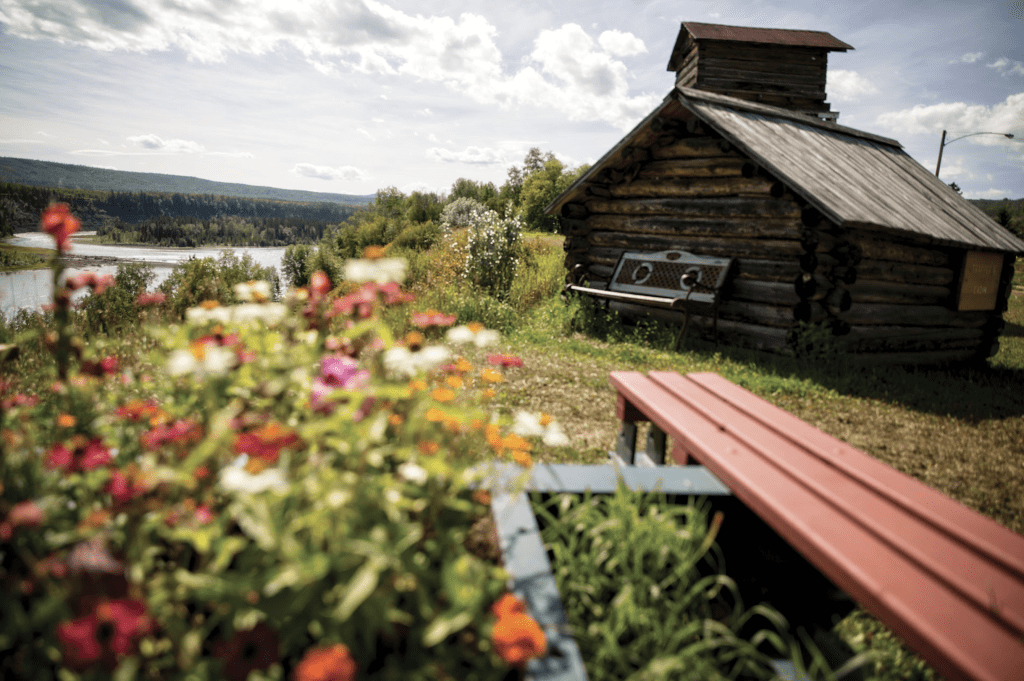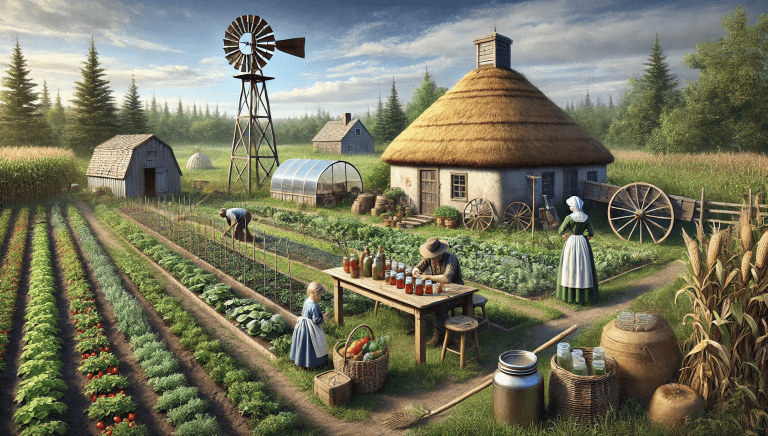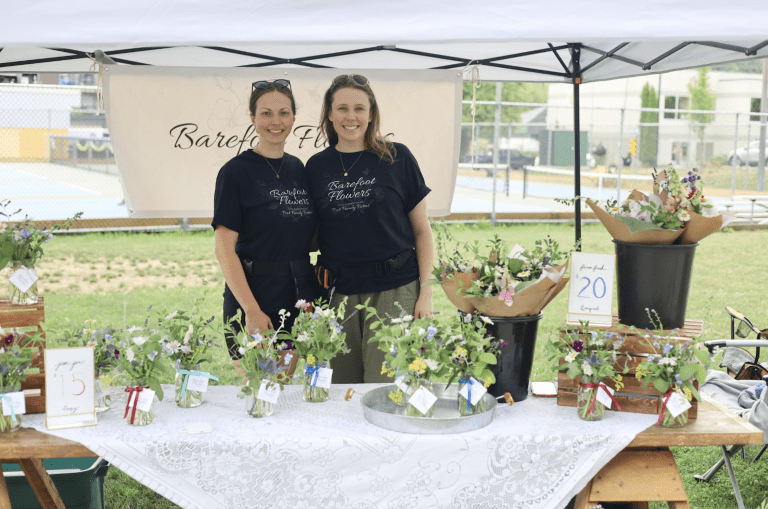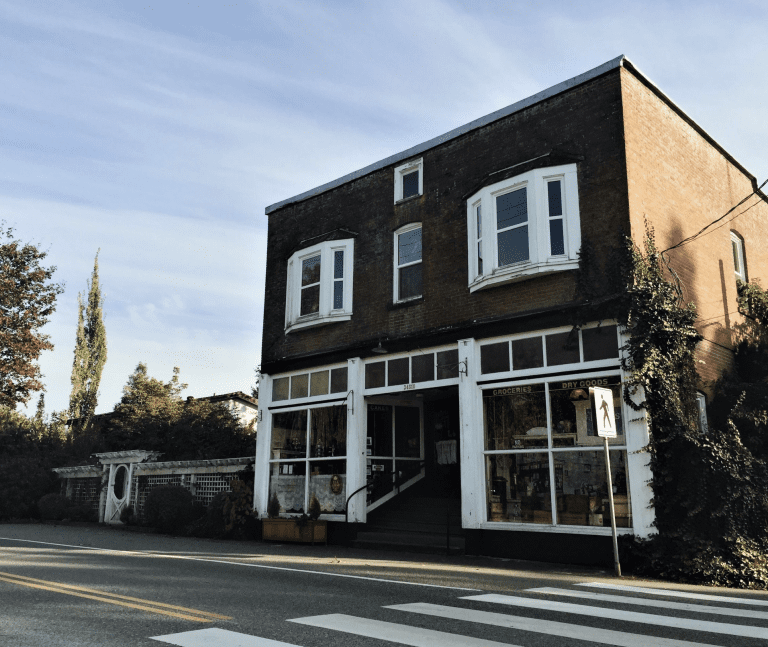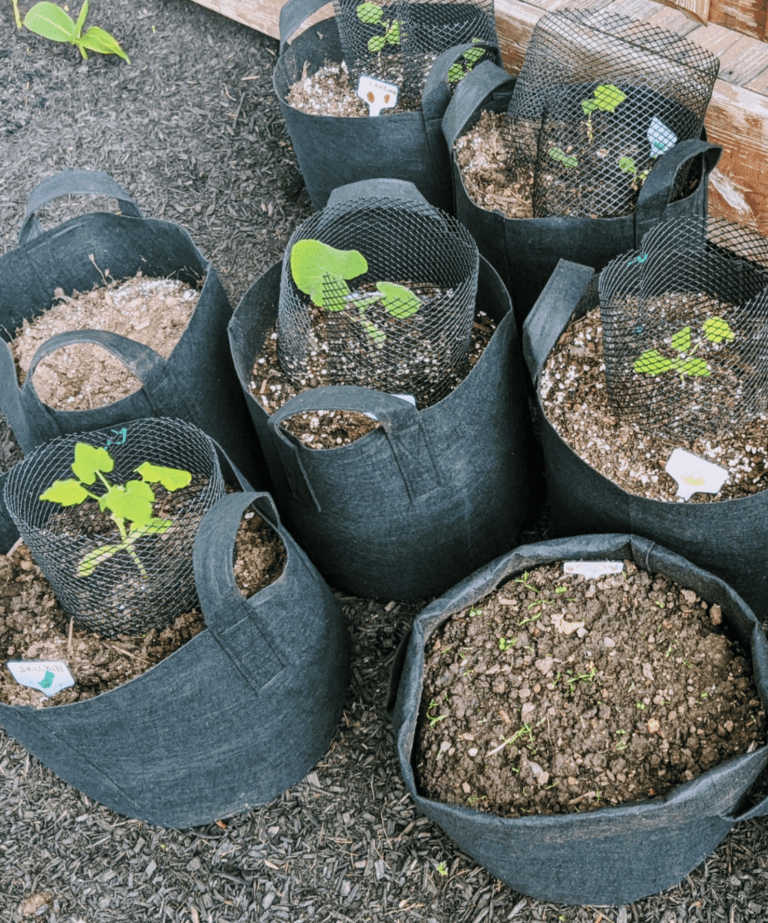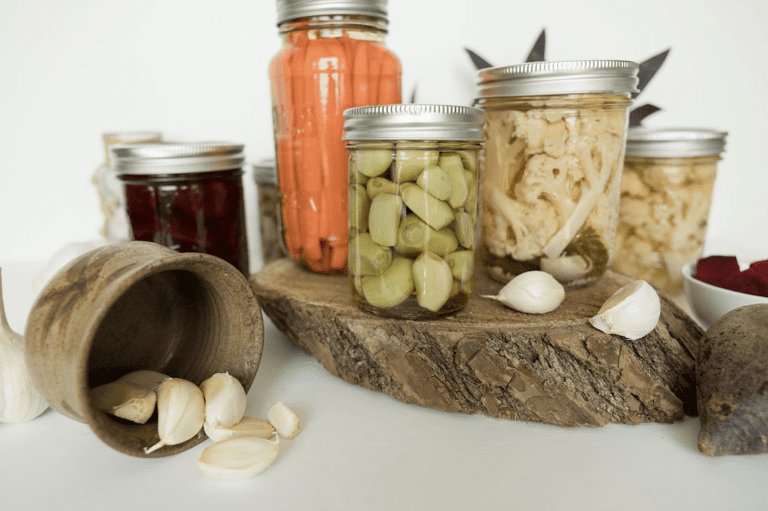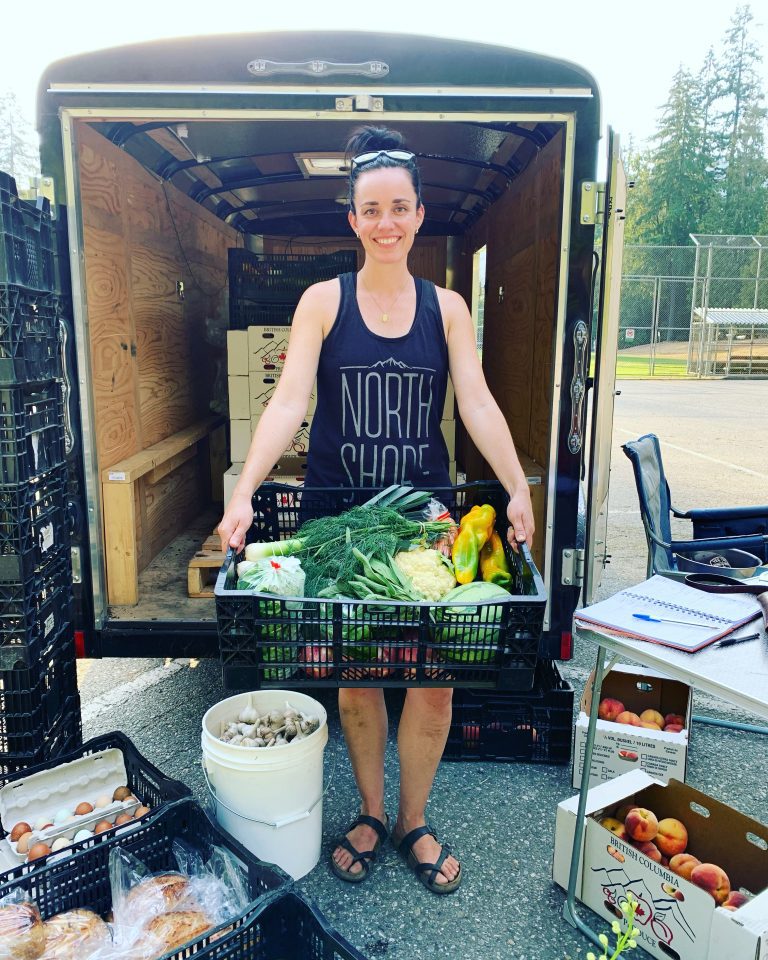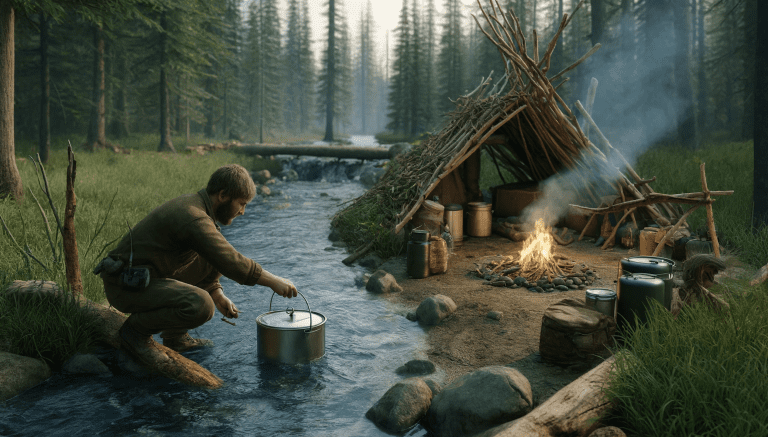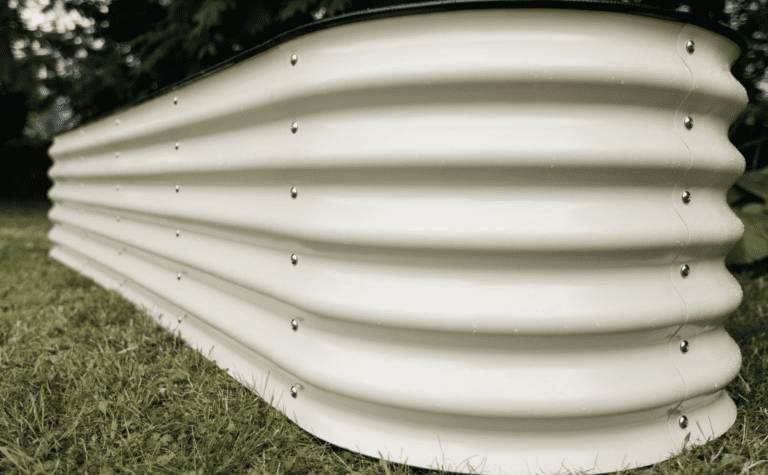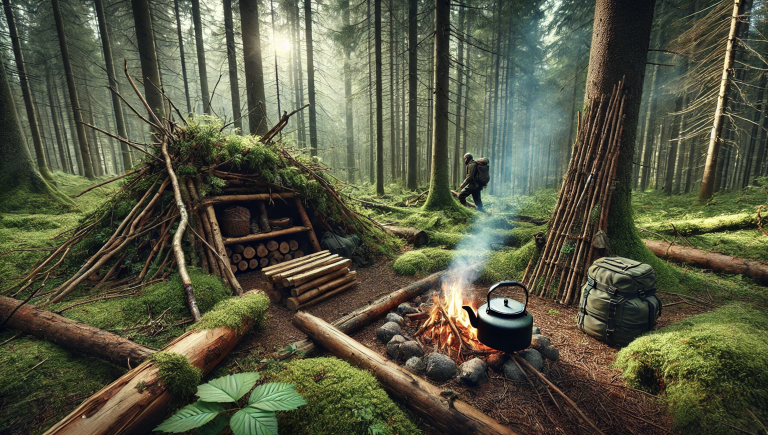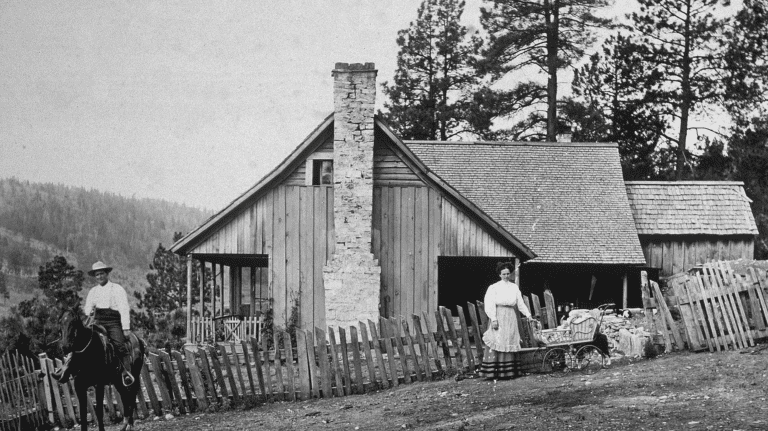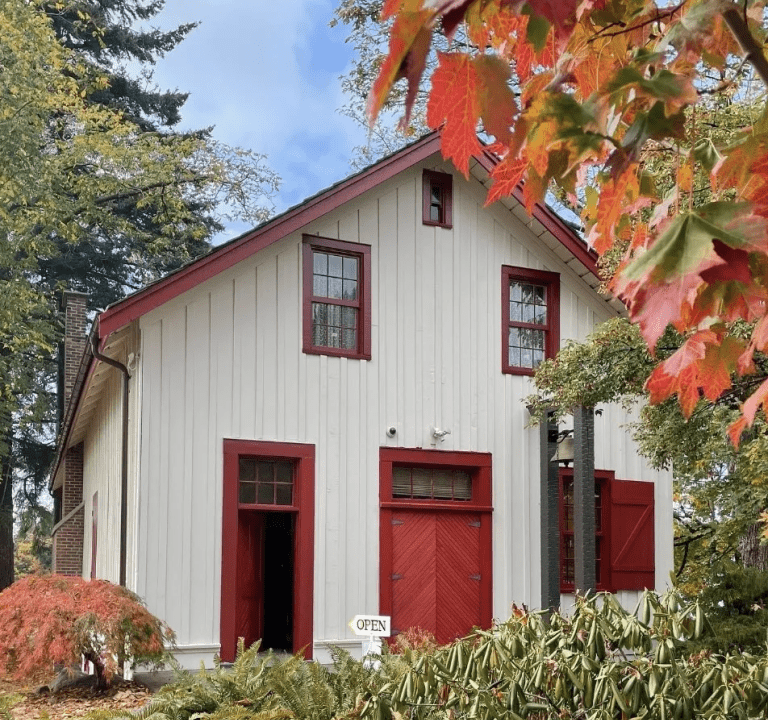Homesteading in Canada has a long and fascinating history that has helped shape the country’s settlement and development. The practice of living off the land and being self-sufficient on a piece of property has its roots in the Dominion Lands Act of 1872, a significant piece of legislation that was passed by the Parliament of Canada to encourage the settlement of western Canada by offering free land to settlers who were willing to improve it.
The Act was designed to promote immigration to Canada and encourage the development of agriculture and other industries in the western regions of the country. Before the Act was passed, much of the land in western Canada was held by the Hudson’s Bay Company, a British fur trading company that had been granted control of the area by the British government. The Act was designed to transfer control of the land from the Hudson’s Bay Company to the Canadian government and to open it up for settlement by homesteaders.
Under the Act, individuals could apply for up to 160 acres of land, free of charge, provided they met certain requirements, such as being over the age of 18 and a British subject or citizen. The Act was successful in attracting settlers to western Canada, and over the next few decades, thousands of homesteaders established farms and communities in the region.
Homesteading under the Dominion Lands Act of 1872 involved a process of obtaining and improving the land. After making an application, a homesteader was required to live on and cultivate the land for a certain period of time, usually three years, before receiving title to the property. Homesteaders were required to build a dwelling and make other improvements to the land, such as clearing and cultivating the soil.
Homesteading was not without its challenges, as settlers faced a harsh and unpredictable climate, limited resources, and isolation from urban centres. However, homesteading played a significant role in shaping the settlement and development of western Canada, and many of the values and traditions of homesteading continue to influence Canadian culture today.
To be a successful homesteader in Canada today, one must possess a wide range of skills, resources, tools, and equipment. These include knowledge of agricultural practices, animal husbandry, construction techniques, and self-sufficiency skills such as food preservation and energy production.
Some essential resources for homesteading in Canada include land, water, and energy sources such as solar panels or split firewood access. Tools and equipment that are necessary for homesteading include a variety of hand tools for gardening and construction, as well as larger equipment such as tractors, generators, and pickup trucks.
In addition to practical skills and resources, successful homesteaders in Canada also possess a deep appreciation for the land and the natural world. They understand the importance of sustainable practices such as crop rotation, composting, and natural pest control, and they strive to minimize their impact on the environment.
Homesteading in Canada can be a rewarding and fulfilling way of life, but it can also be a challenging and complex endeavour. To maximize your success and quality of life as a homesteader, here are some fundamental steps and information to consider:
Research the homesteading lifestyle: Before getting started, it’s essential to educate yourself on what homesteading entails. Look up books, online resources, and communities that share your interest in self-sufficient living. Learn about the challenges, opportunities, and benefits of homesteading.
Choose a location: The location you select can significantly impact your homesteading experience. Look for a place that is suitable for the type of homesteading activities you want to engage in, such as gardening, raising livestock, or building a sustainable home. Consider the climate, soil quality, water availability, and other natural resources in the area.
Acquire land: If you don’t already own land, you will need to purchase or lease it. Look for land that fits your needs and budget, and make sure to research zoning and building regulations in the area.
Plan and design your homestead: Before starting any homesteading activities, create a detailed plan and design for your homestead. Consider the resources you have available, such as land, water, and sunlight, and develop a plan for using them efficiently.
Develop skills: Homesteading requires a range of skills, from gardening and animal husbandry to construction and repair. Take courses or workshops to learn these skills, or find mentors who can teach you.
Start small: Don’t try to do everything at once. Start with a small garden or a few animals and build up gradually as you gain experience and confidence.
Create a sustainable source of food: Growing your food is an essential part of homesteading. Focus on creating a sustainable source of food by using techniques such as composting, crop rotation, and natural pest control.
Build a sustainable home: Consider building a sustainable home using materials that are environmentally friendly and energy-efficient. Use renewable energy sources such as solar or wind power.
Connect with the community: Homesteading can be a solitary lifestyle, so it’s important to connect with other homesteaders and like-minded individuals. Join online communities or attend local events to build a supportive network.
Stay organized: Homesteading can be overwhelming, so it’s essential to stay organized. Keep detailed records of your activities, create schedules, and plan ahead to ensure everything runs smoothly.
Homesteading in Canada requires careful planning, research, and the development of a range of skills. By starting small, focusing on sustainability, and connecting with the community, you can maximize your success and quality of life as a homesteader.
Here are some details about each province and territory in Canada to review for your homesteading needs:
Alberta – Known for its vast open prairies and rugged mountains, Alberta is a popular destination for homesteaders who enjoy farming, ranching, and outdoor activities such as hiking and skiing.
British Columbia – With its stunning coastline, dense forests, and snow-capped mountains, British Columbia is a popular destination for homesteaders who love nature and outdoor recreation.
Manitoba – Located in the heart of Canada, Manitoba is known for its rich farmland, pristine lakes and rivers, and friendly communities.
New Brunswick – This small province on Canada’s east coast is known for its beautiful beaches, charming fishing villages, and rich Acadian culture.
Newfoundland and Labrador – This rugged and remote province is known for its stunning coastal scenery, unique history, and friendly people.
Nova Scotia – With its rich maritime history, picturesque fishing villages, and beautiful countryside, Nova Scotia is a popular destination for homesteaders who love the ocean.
Ontario – Canada’s most populous province, Ontario is known for its vibrant cities, picturesque countryside, and vast natural resources.
Prince Edward Island – This small island province is known for its red-sand beaches, charming fishing villages, and delicious seafood.
Quebec – With its rich French heritage, vibrant cities, and stunning natural beauty, Quebec is a popular destination for homesteaders who love culture and history.
Saskatchewan – Known for its vast prairies, rolling hills, and abundant farmland, Saskatchewan is a popular destination for homesteaders who love farming and ranching.
Northwest Territories – This vast and sparsely populated territory is known for its rugged wilderness, pristine lakes and rivers, and unique Indigenous cultures.
Nunavut – The largest and northernmost territory in Canada, Nunavut is known for its stunning Arctic landscapes, Inuit culture, and abundant wildlife.
Yukon – This rugged and remote territory is known for its stunning mountain scenery, rich mining history, and outdoor recreation opportunities.
*resource citations used in the research,
and creation process for this blog post
The Canadian Encyclopedia
Wikipedia
Wikipedia 2
CBC News
Government of BC
Royal BC Museum
BC Regional Digitized History
National Film Board
Provincial Archives of Sask
Provincial Archives of Alberta
Parks Canada
Parks Canada 2
Historic Places
University of Sask
University of British Columbia
University of Oxford
Library and Archives Canada
National History Society
Encyclopedia Britannica
Collections Canada
Oxford Reference
Wild Bluebell Homestead is a charming hobby farm located in Fraser Valley British Columbia that offers a range of hand-made artisanal products, curated vintage furniture, sourdough bread starters, and other homemade items. The homestead is dedicated to creating unique and high-quality products that are beautiful, functional, and long-lasting, plus each item is carefully crafted with attention to detail. Customers can expect a warm and welcoming experience and a range of products that are perfect for adding a touch of rustic charm to any home.

